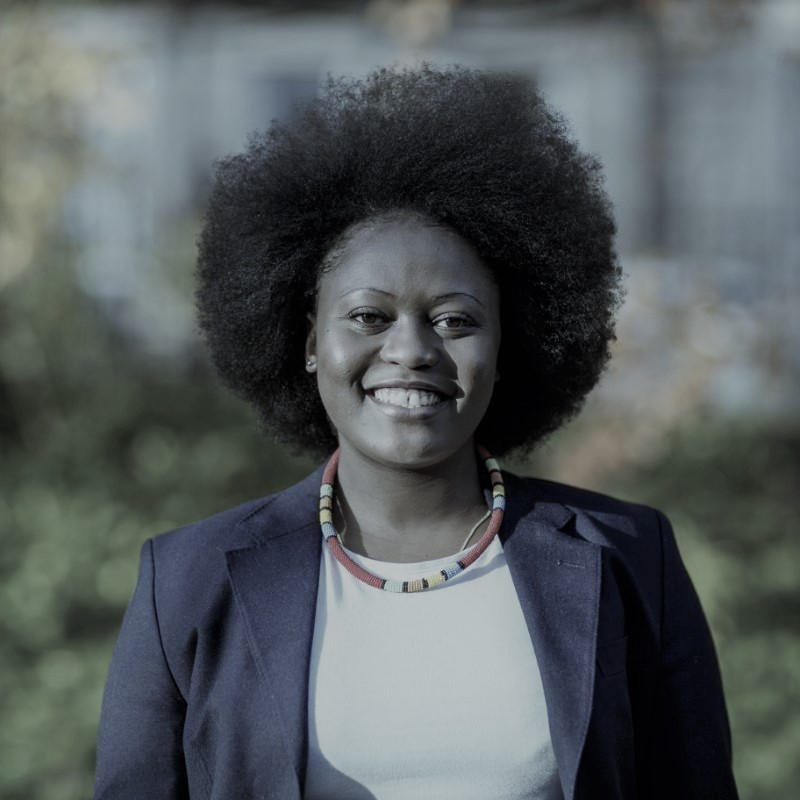
In this post, law student Ayanda Ngobeni shares her experience as the former Black and Ethnic Minority Officer during the height of the pandemic and reveals the importance of listening to students’ personal stories. This post is part of the L&T Enhancement Theme: Examples of positive practices in Equality, Diversity and Inclusion (EDI).
When I thought of putting this piece together, I thought it would be important to reflect on my time as Black and Ethnic Minority Officer during the 2020/21 academic year. My term began in June 2020, when George Floyd was murdered and at the precipice of transformative change. My fellow students elected me to be their representative at a very crucial time, I knew that even though the responsibility I carried on my shoulders was great, I was at the forefront of spearheading institutional change alongside my peers and the pioneers that created a space for us to have a seat at the table.
Laura Smith (Former Welfare coordinator at EUSA) and I compiled a list of six objectives that I wanted to achieve during my term. One of these was to secure a separate report and support platform for incidents of racism in all its forms. I felt that it was necessary to have a dedicated platform that only focused on racism, as the system that was in place at the time was not statistically effective nor was it bringing sufficient reprieve for students or staff who experienced and reported racism. The initial idea was that racism would form part of the existing report and support system and it would not stand on its own. We felt that in order to combat racism in all its forms, it was important for racism to have a platform of its own to address it effectively. The system will also allow us to monitor incidents of racism in the university and to review progress in the system. A dedicated platform would also allow us to make any changes more readily and efficiently.
The next step was to secure a budget for this. This became an even greater task due to the addition of a PhD internship being introduced to ensure that the scope of racism at the University of Edinburgh be understood. The role of the intern was to analyse what has been done to combat racism and what the system can do to ensure that the people who come forward are not only able to file a report but also receive support afterwards.
The Vice President Welfare at the time, Niamh McCrossan, and I worked tirelessly to put together briefs and evidence, before we scheduled meetings to put us in a better position to secure a budget for the report and support system. There was one meeting in particular that I would like to use to describe some of the positive practices in Equality, Diversity, and Inclusion. In the meeting I was speaking to someone who would be very influential in making the final decision.
The meeting was online, it began with the usual introductions and highlighting the importance of our work. I, then, presented the statistics that demonstrated why the current systems for reporting racism were not effective and how this justified the university having a specialised platform for reports for racism. At first, I had the inkling that I was not being heard; and that the response I received was a response that was meant to delay the time they would have to come back with a decision. If you have worked in EDI, you would be familiar with the phrases, “…yes that is something we should be working on” or “we should definitely discuss further at a later time.” There is nothing inherently negative about these statements, however, upon closer inspection, while they acknowledged that there was a problem, they seemed to lack the urgency to address it.
I needed to shift gears, there was a whole BME student population depending on me. I decided to put the data and statistics aside and share a piece of my heart. I said, “BME students go through so much. It is never as simple as coming to university to get an education. There are so many battles, subvert and overt, internal and external struggles that we fight every day we come to the lecture halls. When it is not the othering stare when you walk into the lecture, it is your lecturer using your country or ethnicity as example of all the catastrophises in the world; or the constant fight to be taken seriously in group work because your peers look at the shade of your skin and assume you are not intelligent enough to make a meaningful contribution to the group. It means that my friend cannot walk into any barbershop for a haircut because there aren’t many that cater to our hair texture. The problem is evident, the fact there is a position for BME representation is the problem. I can’t just go to school. I need to fight for my space here too.” Something changed in their face, there was a shift of some sort. Like there was something in what I said that made them realise the gravity of not only my learning experience but the weight I carry everyday by virtue of being a Black African woman.
I want to shine a light on the connection from person to person. That is what I have identified as a positive experience in EDI. We are all sharing the same experience, the complicated, heavy yet beautiful human experience. When you connect to someone on that level, they can’t help but understand where you are coming from. Most of the change that has taken place in the world was because of that connection. I am not saying this changes everything and I am not naïve to the fact that this does not always work. But what I am saying is that when it does, we can move mountains.
By the end of the term, a budget was secured for the report and support system and a student was enrolled for the PhD internship role. Everyone who worked to push this forward was overjoyed.
Changes in EDI can happen if you have someone willing to connect to your humanity.
 Ayanda Ngobeni
Ayanda Ngobeni
Ayanda Ngobeni is a final year law student from Johannesburg, South Africa. Beginning her transformative leadership journey at the African Leadership Academy, she has continued on this path as a MasterCard Foundation Scholar. Throughout her studies, she has assumed many roles including: student consultant at FreshSight, the Sharing Things podcast host for season 5, Black and Ethnic Minority Officer and the Microaggression and Cultural Sensitivity Intern for the Edinburgh Students Association. Ayanda is passionate about curating ways to use law to bring about institutional change
Podcast: https://www.ed.ac.uk/alumni/services/sharing-things-podcast/season-five
LinkedIn: https://www.linkedin.com/in/ayanda-ngobeni-8258231a6/
Spotify: https://open.spotify.com/show/2yv1hBUgj4LQgFManzXdTh?si=d569d66c1bb24952

